Disclosure: This article contains affiliate links. We may earn a commission from purchases at no extra cost to you, which helps our travel content.
There's something profoundly therapeutic about exploring the world through its flavors. As both a physical therapist and cultural enthusiast, I've discovered that food isn't just nourishment—it's a gateway to understanding civilizations. This fall, I embarked on what I can only describe as the ultimate Mediterranean culinary pilgrimage: a two-week journey from the sensory explosion of Casablanca's markets to the refined elegance of Avignon's centuries-old vineyards. Magandang buhay (beautiful life) indeed awaits couples seeking to reconnect through shared gastronomic discoveries.
Casablanca: Where Ancient Spice Routes Meet Modern Luxury
Arriving in Casablanca in early October means perfect 75°F days—ideal for exploring without the summer crowds. I began my journey at La Corniche, where the Atlantic breeze carries salt and spice scents from nearby cafés. While Rick's Café (inspired by 'Casablanca' the film) draws tourists, the real culinary magic happens in the Central Market.
Here, vendors whose families have occupied the same stalls for generations offer tastings with theatrical flair. I spent hours with Mohammed, a third-generation spice merchant who taught me how different combinations of spices were historically used not just for flavor but for medicinal purposes—something that resonated with my physical therapy background.
For accommodations, I chose the Four Seasons Casablanca, where the ocean-view terrace became my morning ritual space. Their breakfast spread featuring traditional msemen (Moroccan flatbread) drizzled with local honey and fresh mint tea became my daily ritual before venturing out.
The highlight was my private cooking class at La Maison Arabe, where I learned the proper technique for preparing authentic tagine. The key tool I've since added to my kitchen arsenal is a clay tagine pot, which truly makes a difference in how flavors develop during slow cooking.
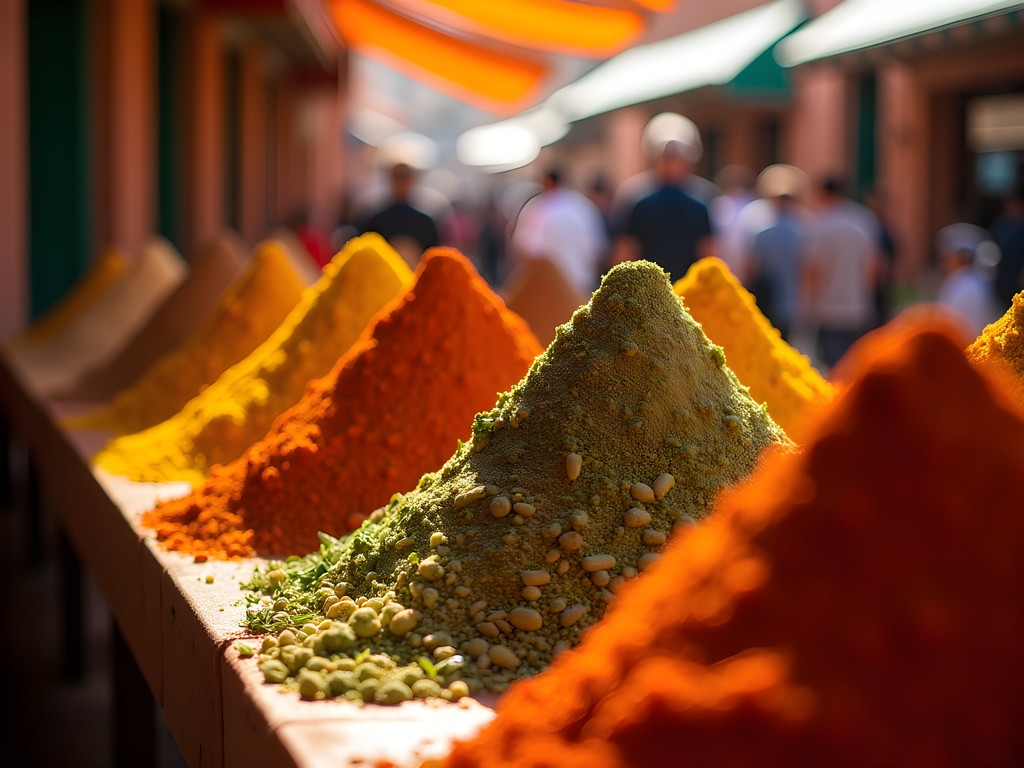
💡 Pro Tips
- Visit spice markets in morning hours when vendors are setting up fresh displays
- Ask for 'dukkah' - a nut and spice blend that makes an excellent gift to bring home
- Book cooking classes at least two days in advance as the best ones fill quickly
The Art of Moroccan Tea Ceremonies
No culinary journey through Morocco is complete without understanding the cultural significance of mint tea. What appears deceptively simple—green tea, fresh mint, and sugar—becomes an elaborate ritual that embodies Moroccan hospitality.
I was fortunate to experience a traditional ceremony at Riad Kniza, where the tea master poured the steaming liquid from impressive heights, creating a frothy top that signifies proper preparation. The pouring itself is an art form that takes years to master, creating both aeration and proper mixing of flavors.
The proper equipment makes all the difference in recreating this experience at home. I invested in an authentic Moroccan tea set that includes the distinctive metal teapot and colorful glasses. My physical therapist's perspective notes how the act of preparing and serving tea this way creates mindfulness—a moving meditation that forces presence and attention to detail.
Pro tip: When invited for tea in someone's home, it's considered polite to accept at least three glasses. The Moroccan saying goes: 'The first glass is as bitter as life, the second as strong as love, the third as gentle as death.'
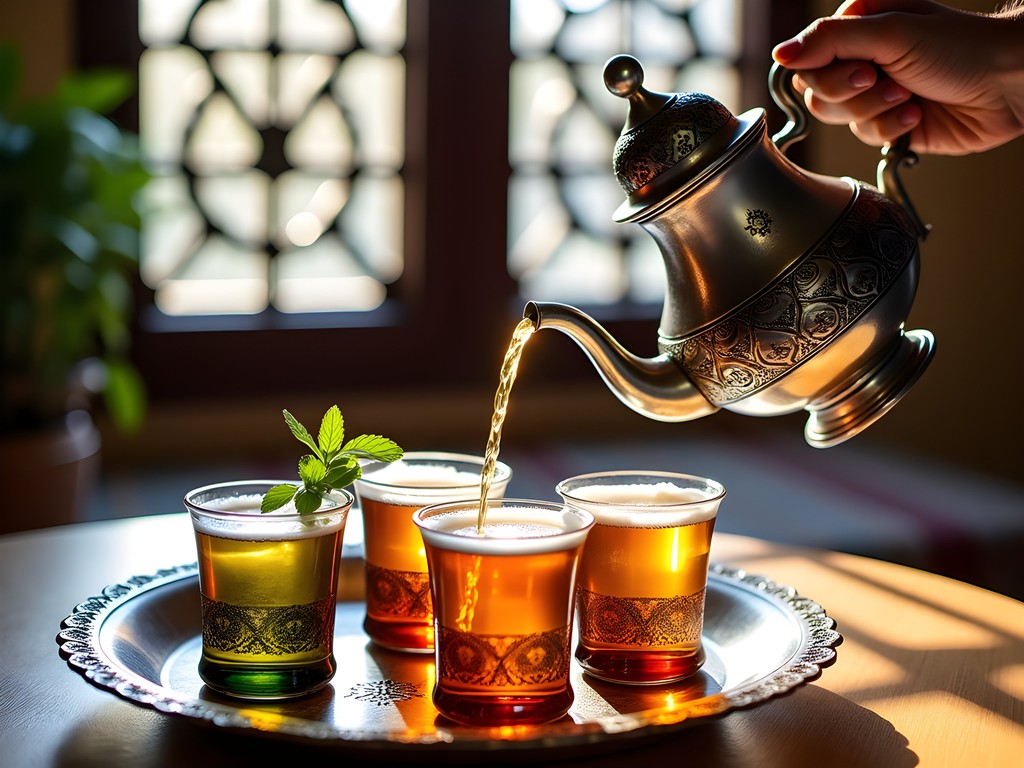
💡 Pro Tips
- Tea should be poured from at least 12 inches above the glass to create proper froth
- The host always tastes first to ensure proper sweetness before serving guests
- Look for tea glasses with real gold detailing for an authentic experience
Crossing Cultures: From Moroccan Markets to Provençal Farms
The transition from Morocco to France offers a fascinating study in culinary contrasts. I flew from Casablanca to Marseille (a surprisingly quick 2.5-hour flight) and drove the scenic route to Avignon, stopping at small villages along the way.
What struck me immediately was how both cultures revere fresh ingredients but express this reverence differently. Where Moroccan cuisine celebrates bold spice combinations, Provençal cooking highlights the pure essence of each ingredient.
In Avignon, I stayed at La Mirande, a 14th-century cardinal's mansion turned boutique hotel. Their garden-to-table restaurant serves cuisine that honors historical Provençal recipes while incorporating modern techniques. The hotel also offers market tours with their chef—an experience I highly recommend for understanding how locals select the perfect ingredients.
For serious culinary enthusiasts, I suggest investing in a truffle slicer before your trip. During truffle season (late fall through winter), you'll find these treasures at markets, and having your own tool allows you to properly enjoy your purchases in your accommodation.
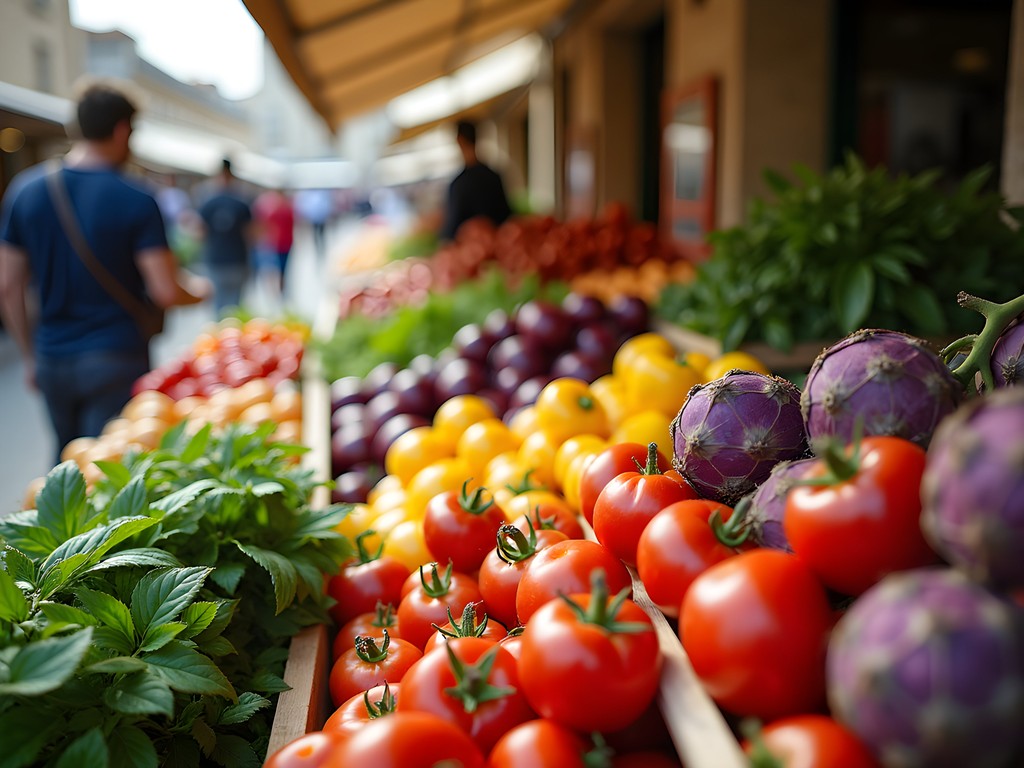
💡 Pro Tips
- Book accommodations with kitchenettes if possible to experiment with market purchases
- Markets are typically closed on Mondays in Provence - plan accordingly
- Ask vendors for cooking suggestions - they often share family recipes
Châteauneuf-du-Pape: Understanding Terroir Through Tasting
Just a short drive from Avignon lies Châteauneuf-du-Pape, home to some of France's most celebrated wines. As someone who appreciates the science behind sensory experiences, I was fascinated by how the region's famous galets roulés (round stones covering the vineyards) create a microclimate that impacts the grapes' development.
I arranged a private tasting tour with Olivier, a seventh-generation winemaker whose family has produced wines since before the French Revolution. What makes these experiences special is the focus on terroir—that untranslatable French concept encompassing soil, climate, and human tradition.
For serious wine enthusiasts, I recommend bringing a wine preservation system on your journey. This allows you to sample special bottles purchased directly from vineyards without committing to finishing them immediately—perfect for couples who want to extend their tasting experiences across multiple evenings.
The fall harvest season (vendange) transforms the region into a hive of activity. Many smaller family vineyards welcome visitors to observe or even participate in harvest traditions that have remained largely unchanged for centuries. The physical exertion of picking grapes gives you a profound appreciation for what goes into each bottle—something I noted as particularly therapeutic for those accustomed to desk jobs.
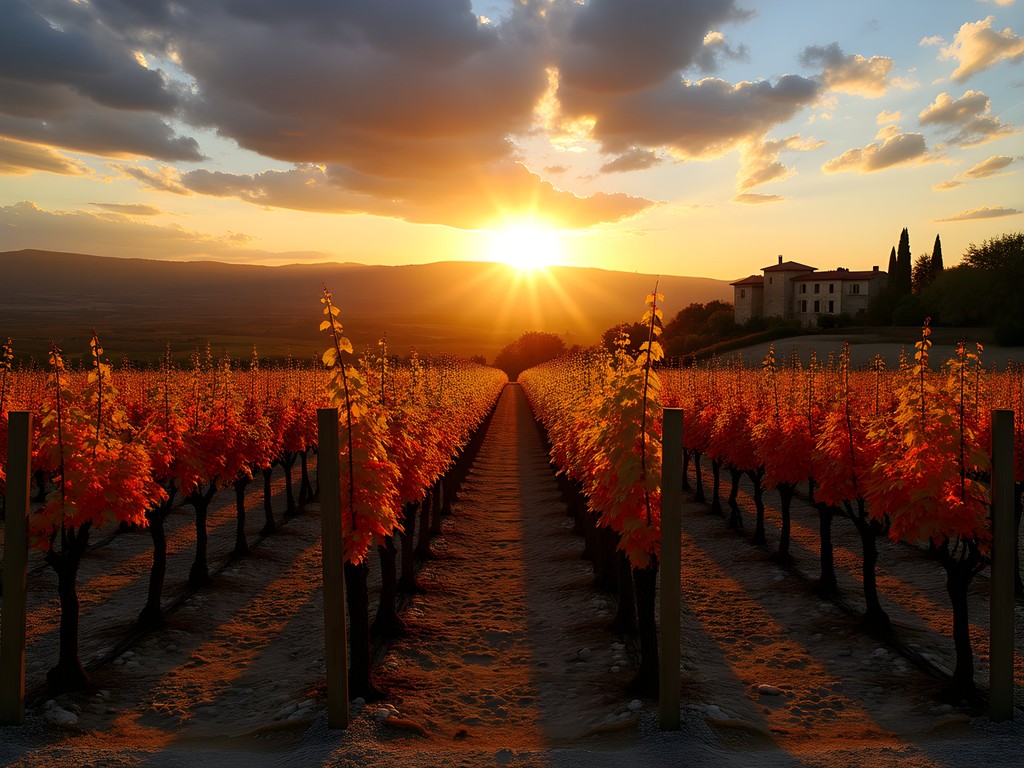
💡 Pro Tips
- Make appointments for tastings at smaller family vineyards at least a week in advance
- Learn the proper way to hold a wine glass by the stem to avoid changing the wine's temperature
- Take detailed notes during tastings - the sensory memories fade quickly between vineyards
The Wellness Aspect: Balancing Culinary Indulgence
As a physical therapist, I'm acutely aware of how travel—especially culinary-focused journeys—can impact our bodies. The Mediterranean diet is celebrated for its health benefits, but two weeks of constant indulgence requires balance.
In Avignon, I started each day with a run along the medieval walls, combining cardio with historical sightseeing. Many luxury hotels now offer excellent fitness facilities, but I prefer to pack resistance bands for in-room workouts. The portable resistance band set I travel with weighs practically nothing and allows for a full-body workout anywhere.
Hydration becomes especially important when enjoying wine tastings. I always carry a collapsible water bottle that can be rolled up when empty. This simple habit ensures I maintain a 1:1 ratio of water to wine—a practice that significantly reduces next-day fatigue.
For couples, I suggest incorporating active culinary experiences rather than just passive consumption. Harvesting olives in Provence or kneading bread dough in a traditional Moroccan communal bakery creates meaningful connections to food while engaging physically with local traditions. These experiences offer both cultural immersion and natural movement patterns that counterbalance the inevitable indulgences.
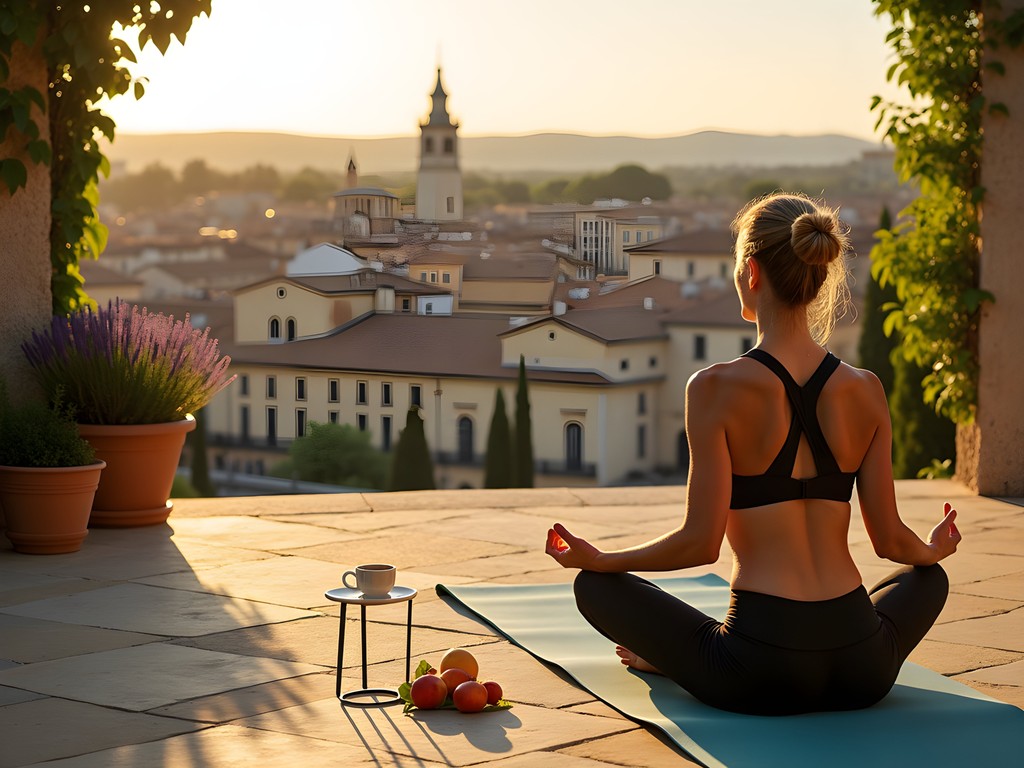
💡 Pro Tips
- Schedule movement breaks between meals - even a 15-minute walk helps digestion
- Practice the 'one-bite rule' for rich desserts to sample everything without overindulging
- Book accommodations within walking distance of major attractions to naturally increase daily steps
Final Thoughts
This two-week journey from Casablanca to Avignon offers couples far more than exquisite flavors—it provides a shared narrative that continues long after you've returned home. Each time you prepare Moroccan mint tea or open a bottle of Châteauneuf-du-Pape, you'll reconnect with these experiences together.
What makes this particular itinerary special is the striking contrast between North African and Southern French culinary traditions, highlighting how geography, history, and culture shape our relationship with food. While both regions share Mediterranean influences, their expressions couldn't be more different—yet equally compelling.
As a physical therapist who understands the body's relationship with pleasure and nourishment, I encourage you to approach this journey with all senses engaged. Notice how different foods affect your energy, mood, and connection with your partner. The most luxurious aspect of travel isn't found in five-star accommodations but in these moments of profound presence.
Salamat sa pagbabasa (thank you for reading), and may your culinary adventures nourish both body and relationship. I'd love to hear about your own Mediterranean flavor discoveries in the comments below.
✨ Key Takeaways
- Fall offers the perfect climate and harvest activities in both Morocco and Southern France
- Balance indulgent meals with movement to fully enjoy the culinary journey without discomfort
- Learning traditional preparation methods provides deeper cultural understanding than simply consuming dishes
- The contrast between Moroccan and Provençal cuisines provides a comprehensive understanding of Mediterranean flavors
📋 Practical Information
Best Time to Visit
September-November
Budget Estimate
$8,000-12,000 for two people for two weeks (luxury accommodations and experiences)
Recommended Duration
14 days (7 days each in Morocco and France)
Difficulty Level
Moderate

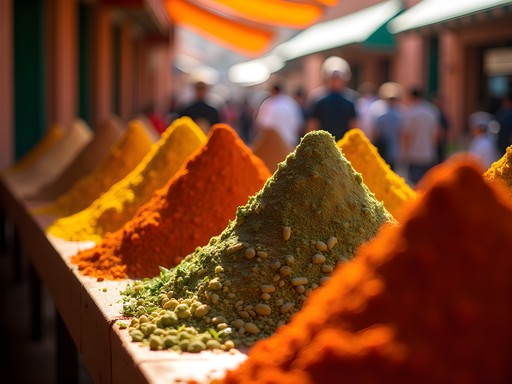
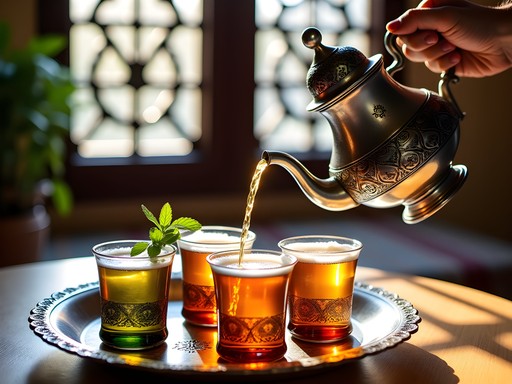
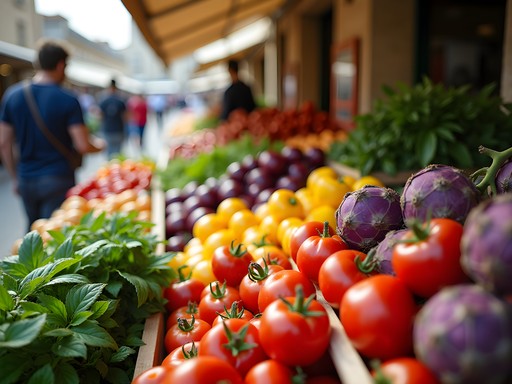
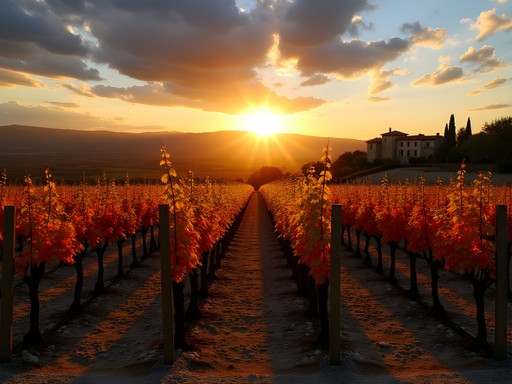
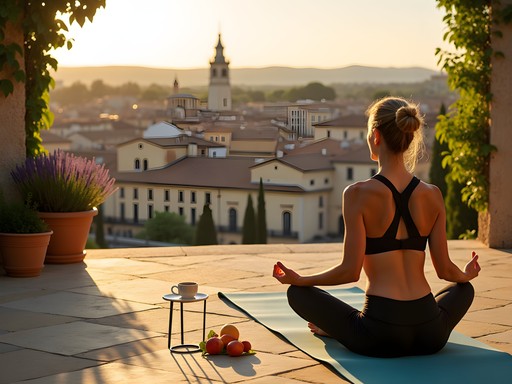


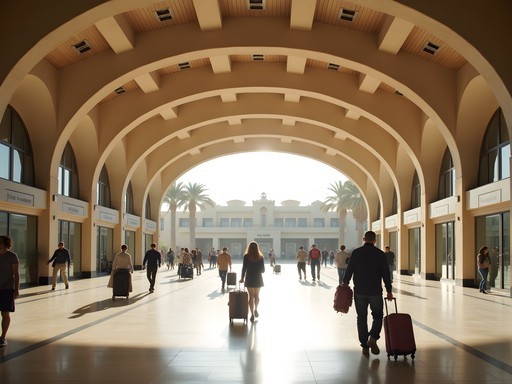
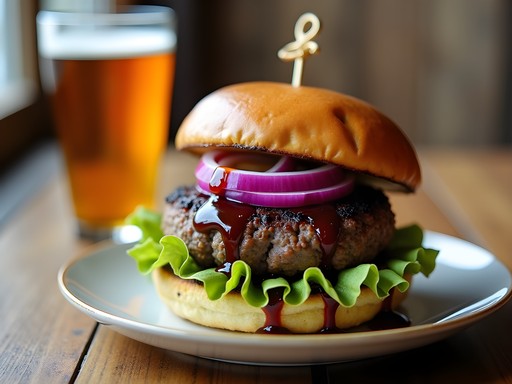
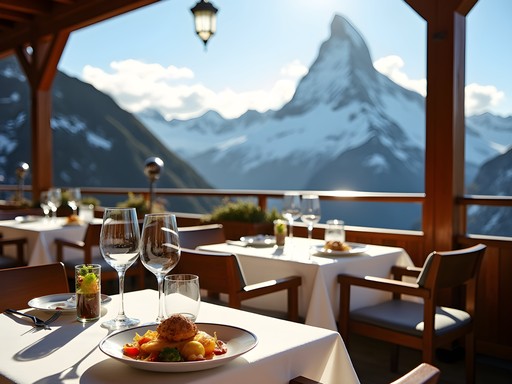
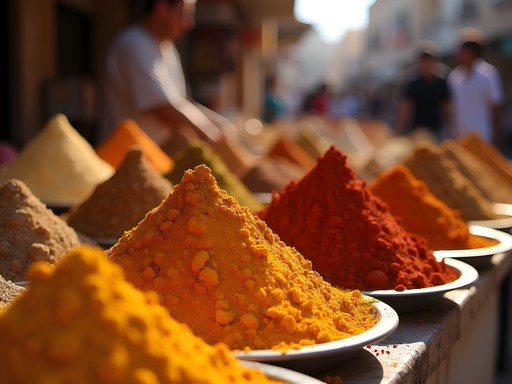
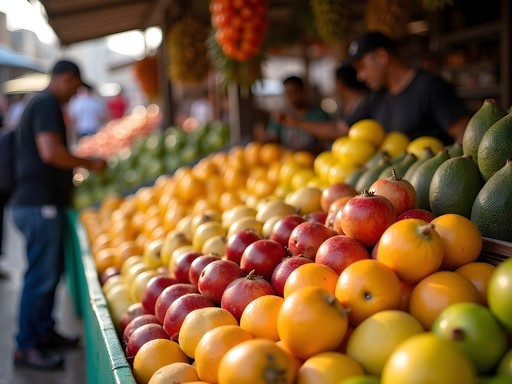
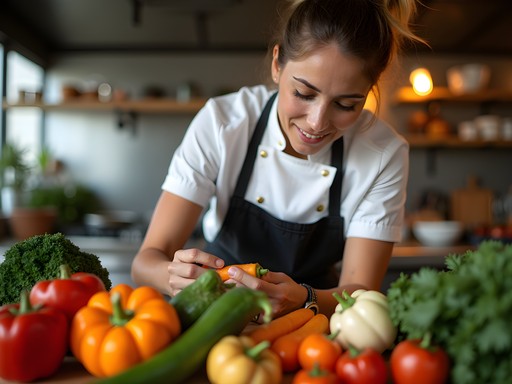
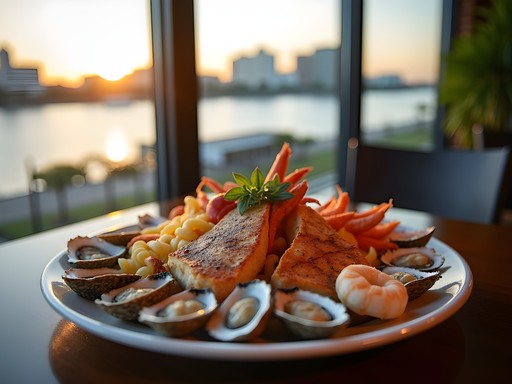
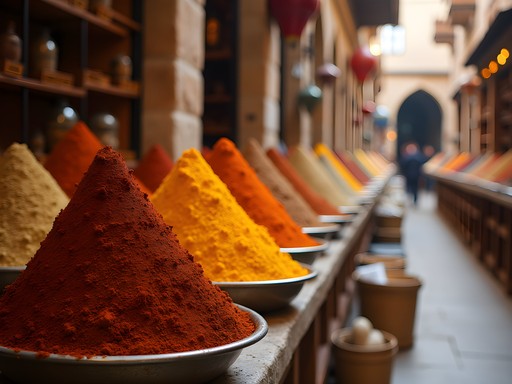
Comments
sunnyclimber
Just booked our tickets to Casablanca after reading this! Can't wait to experience those spice markets!
Nicole Russell
Mason, your description of the tea ceremony brought back so many memories! I visited Morocco last year and was completely enchanted by the ritual. Did you get to try making it yourself? I took a cooking class in Fez where they taught us the proper pouring technique - it's SO much harder than it looks! The height of the pour really does affect the taste. I used my travel journal to record all the spice combinations I learned. Your transition from Moroccan cuisine to French wine culture is exactly the kind of contrast that makes Mediterranean travel so special!
Mason Berry
Nicole, you're absolutely right about the pouring technique! I tried it several times and splashed tea everywhere before getting it somewhat right. The host was very patient with me! That cooking class in Fez sounds amazing - I'll have to add that to my list for next time.
happyperson
This looks amazing! We're planning a similar trip next spring. How did you get between Casablanca and Avignon? Did you fly or is there a good train route?
Mason Berry
We actually flew from Casablanca to Marseille (about 2.5 hours) and then rented a car to drive to Avignon. It's only about an hour drive and the scenery is stunning!
happyperson
Perfect, thanks! Did you book your wine tastings in advance or just show up?
Mason Berry
Definitely book the Châteauneuf-du-Pape tastings in advance, especially if you want the more intimate experiences. The smaller family vineyards often have limited spots!
islandchamp
Those spice market photos are incredible! The colors just pop off the screen.
Mason Berry
Thanks! The markets in Casablanca are a photographer's dream - I barely had to edit those shots!
Claire Hawkins
Mason, your post captures the soul of Mediterranean cuisine beautifully! We did a similar journey with our kids (ages 8 and 10) last summer, and it was surprisingly family-friendly. The cooking class in Casablanca was the unexpected highlight - our children still talk about making their own tagines. One tip for families: the spice merchants in the old medina were so patient with our kids, letting them smell everything and learn about the origins. In Avignon, we stayed at a small farmhouse with a kitchen, which let us shop at the morning markets and practice our new Moroccan cooking skills with French ingredients - a fun fusion experiment! Your description of the transition between these culinary worlds is exactly what makes Mediterranean travel so special.
sunnyseeker
Claire, which cooking class did you take in Casablanca? Would love to book something similar!
Claire Hawkins
We did ours through La Maison Arabe - they were fantastic with the kids and the chef spoke excellent English. Bonus: you get to eat everything you make!
nomadperson
If anyone's planning this trip, don't miss the seafood in Casablanca! The port area has some incredible restaurants that aren't in most guidebooks. Also, the wine tours in Châteauneuf-du-Pape book up fast during peak season - we learned this the hard way. Make reservations at least a week in advance, especially for the smaller family vineyards which often give the best experiences.
luckybuddy
Just got back from Morocco last month and your post is giving me serious nostalgia! That mint tea ritual is no joke - I was surprised how sweet they make it! We bought a traditional tea set to bring home but can't seem to get the pouring height right lol. The spice markets were overwhelming in the best way possible. Did anyone else struggle to fit all their spice purchases in their luggage? I ended up using my packing cubes to squeeze everything in.
cityclimber
The tea IS crazy sweet! I had to ask for less sugar after the first day.
sunnyseeker
This looks amazing! How many days would you recommend for Casablanca if we're mostly interested in the food scene?
Mason Berry
I'd say minimum 3 days in Casablanca to really explore the markets, try different restaurants, and maybe fit in a cooking class. If you can stretch to 4-5 days, you'll have time to discover some hidden gems without rushing!
Sarah Powell
Mason, your juxtaposition of Casablanca's sensory explosion with the refined subtlety of Provençal cuisine is spot on! I spent three weeks tracing a similar path last year and found the contrast fascinating. The transition from tagines to tians tells such a story about Mediterranean cultural exchange. Did you notice how the use of preserved lemons creates a thread between these seemingly different culinary traditions? Your section on tea ceremonies brought back vivid memories - the theatricality of proper Moroccan tea service is something everyone should experience at least once.
Mason Berry
Thanks Sarah! You're absolutely right about the preserved lemons - that continuity across the Mediterranean was one of my favorite discoveries. Did you have a favorite vineyard in Châteauneuf-du-Pape?
Sarah Powell
Domaine de la Janasse was my standout! Their explanation of how the famous galets stones affect the wine was fascinating. Perfect combination of education and excellent tasting.
cityclimber
Those Moroccan spice markets look incredible! Adding this to my bucket list.
Venture X
Premium card with 2X miles, $300 travel credit, Priority Pass